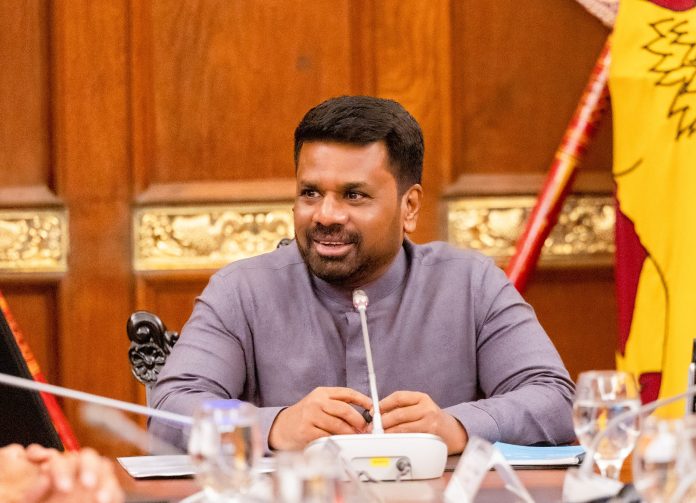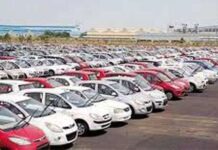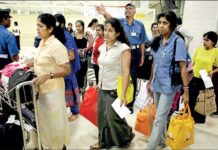Colombo, June 17 — President Anura Kumara Disanayake yesterday pledged to steer Sri Lanka toward a stable and self-reliant economy by 2028, vowing that the country would not require another international financial bailout once the current IMF program concludes.
Delivering the keynote address at the high-level conference yesterday (16) “Sri Lanka’s Road to Recovery: Debt and Governance”, attended by International Monetary Fund (IMF) First Deputy Managing Director Dr. Gita Gopinath, the President outlined a bold vision for national economic revival and reaffirmed his commitment to completing the IMF’s Extended Fund Facility (EFF) program as planned.
“A country cannot maintain sovereignty where the economy has collapsed,” Disanayake said. “Whether we like it or not, we have already lost a degree of our sovereignty and independence. The ultimate outcome must be the restoration of our national sovereignty and self-reliance.”
The President unveiled a sweeping economic reform roadmap, focused on restructuring the bloated public sector, enhancing social protections for vulnerable communities, offering targeted relief for SMEs, attracting foreign direct investment (FDI), and integrating rural areas into the broader economy.
Disanayake credited the country’s hard-won macroeconomic stability to decisive debt restructuring, increased state revenue, and replenished foreign reserves. However, he emphasized that the deepest credit was due to the Sri Lankan people.
“They made immense sacrifices and endured hardships to help rescue the nation from this crisis,” he acknowledged, while warning that the wounds of the crisis remain unhealed.
He stressed that the current moment of relative stability must be a foundation for transformation—not a return to complacency. One of the most pressing issues, he said, is the unsustainable cost of the public sector.
“We need a strong public service, but our current expenditure is excessive. Some institutions are obsolete and must be closed or restructured,” he asserted.
Highlighting the depth of institutional dysfunction, the President pointed to recent high-profile scandals involving top public officials. “Corruption is not just about bribes—it leads to neglected vital projects and the persistence of unnecessary ones. This must end.”
The President pledged to clean up State institutions and reiterated the government’s commitment to cost-reflective pricing in sectors like energy—balanced by well-targeted relief for those most affected.
“When we implement economic reforms, we cannot ask people to suffer in silence. Relief must be provided to vulnerable communities during this transition. That is the responsibility of a just government,” he said, adding that such assistance would not be politicised.
On foreign investment, Disanayake acknowledged Sri Lanka’s historic failure to attract sufficient FDI and committed to offering strategic incentives and an improved investment climate, in consultation with international partners like the IMF.
He also called for immediate support to restore small and medium enterprises, noting that over 90% had collapsed due to the crisis, not mismanagement.
Disanayake emphasized that true recovery must be inclusive: “Urban indicators may look positive, but rural communities remain marginalised. Growth without expansion leaves too many behind.”
The President’s address marked a pivotal moment in Sri Lanka’s path to economic renewal, with the IMF delegation reaffirming its support and hailing the government’s commitment to governance and reform.
Disanayake concluded by reiterating his long-term goal: “This must be the last IMF program Sri Lanka will ever need. We owe it to our people to ensure that this time is different.”



